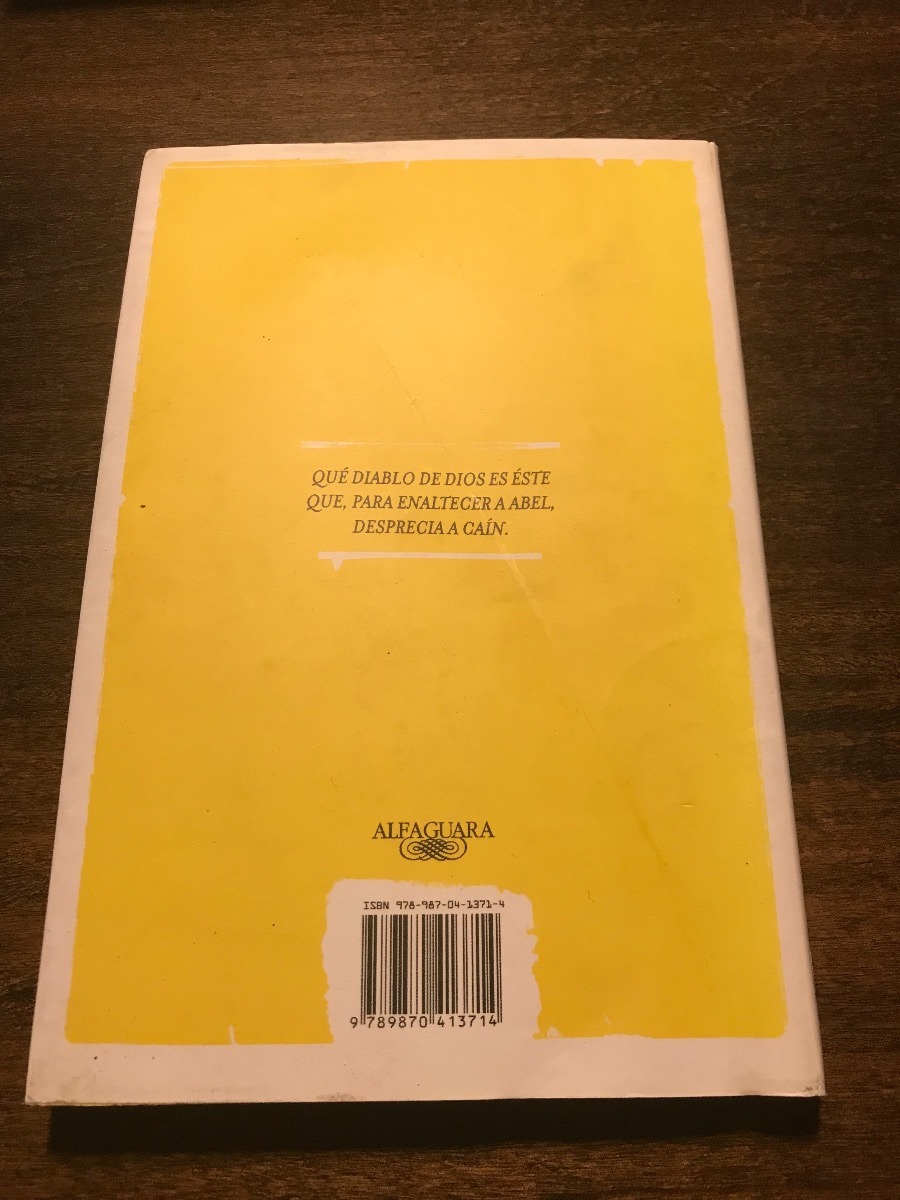

In Cain, however, Cain gets to enjoy his endless exile, ambling aimlessly through a number of other biblical episodes and scenes, like an Old Testament Zelig. In the Bible, the last we hear of Cain is around Genesis 4:17, when he is building a city called Enoch. He kills his brother Abel, and is then duly condemned by God to become a ceaseless wanderer – or, as the King James version has it, a "fugitive and a vagabond shalt thou be in the earth". The chronology is this: as in the biblical account, Adam and Eve are expelled from the garden and have children, one of whom is Cain.

Before we continue with this instructive and definitive history of cain, undertaken with unprecedented boldness, it might be advisable to introduce some clarity into the chronology of events." With Saramago, the tongue is always in the cheek, the eyebrows always arched, the nose raised, eyes forever rolling. " The long sentence, the lower-case proper nouns, the low-level humour: Saramago's prose always sounds like the beginnings of a stand-up routine or a shaggy dog story. "When the lord, also known as god, realised that adam and eve, although perfect in every outward aspect, could not utter a word or make even the most primitive of sounds, he must have felt annoyed with himself, for there was no one else in the garden of eden whom he could blame for this grave oversight.

The novel begins in characteristic Saramago style.


 0 kommentar(er)
0 kommentar(er)
